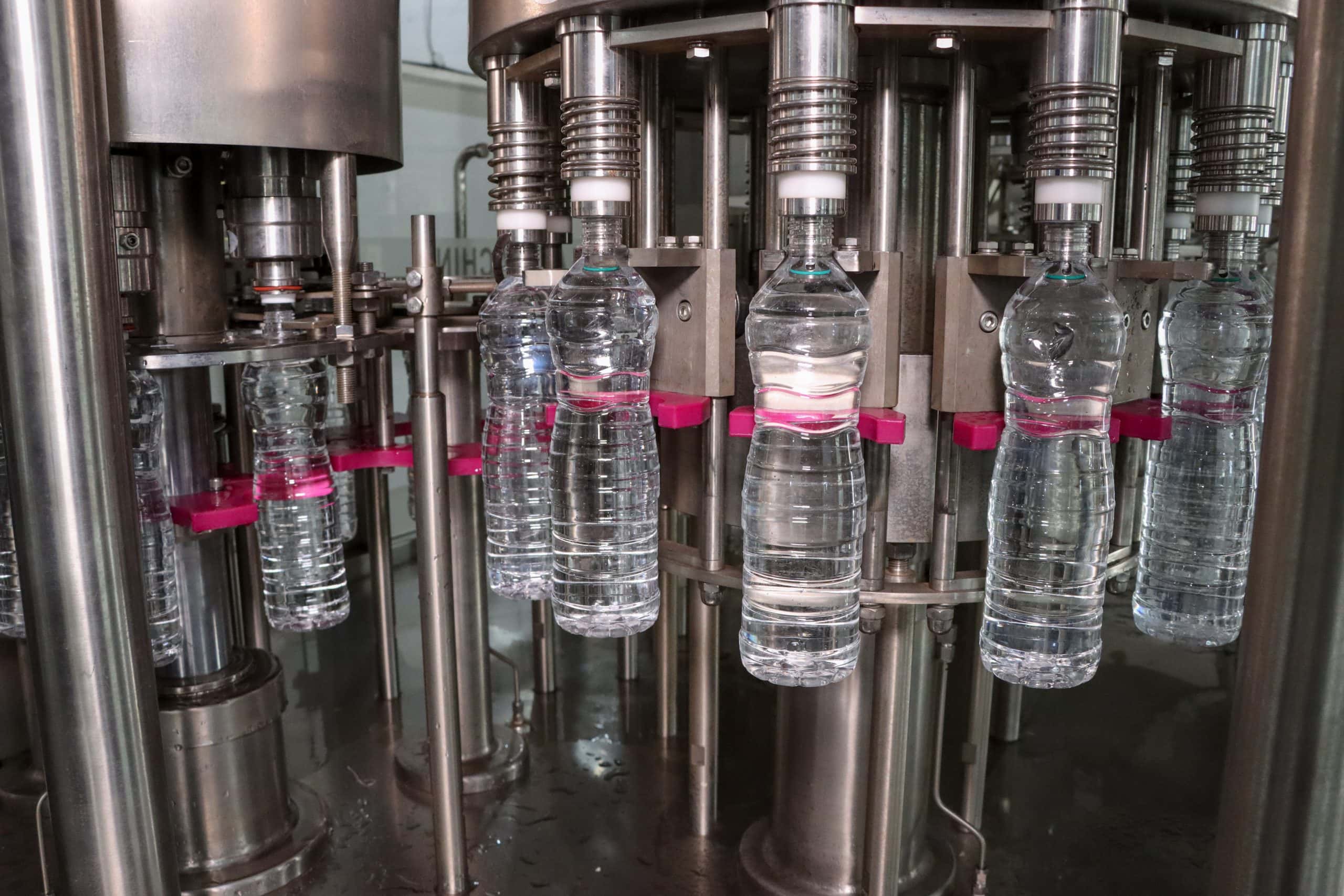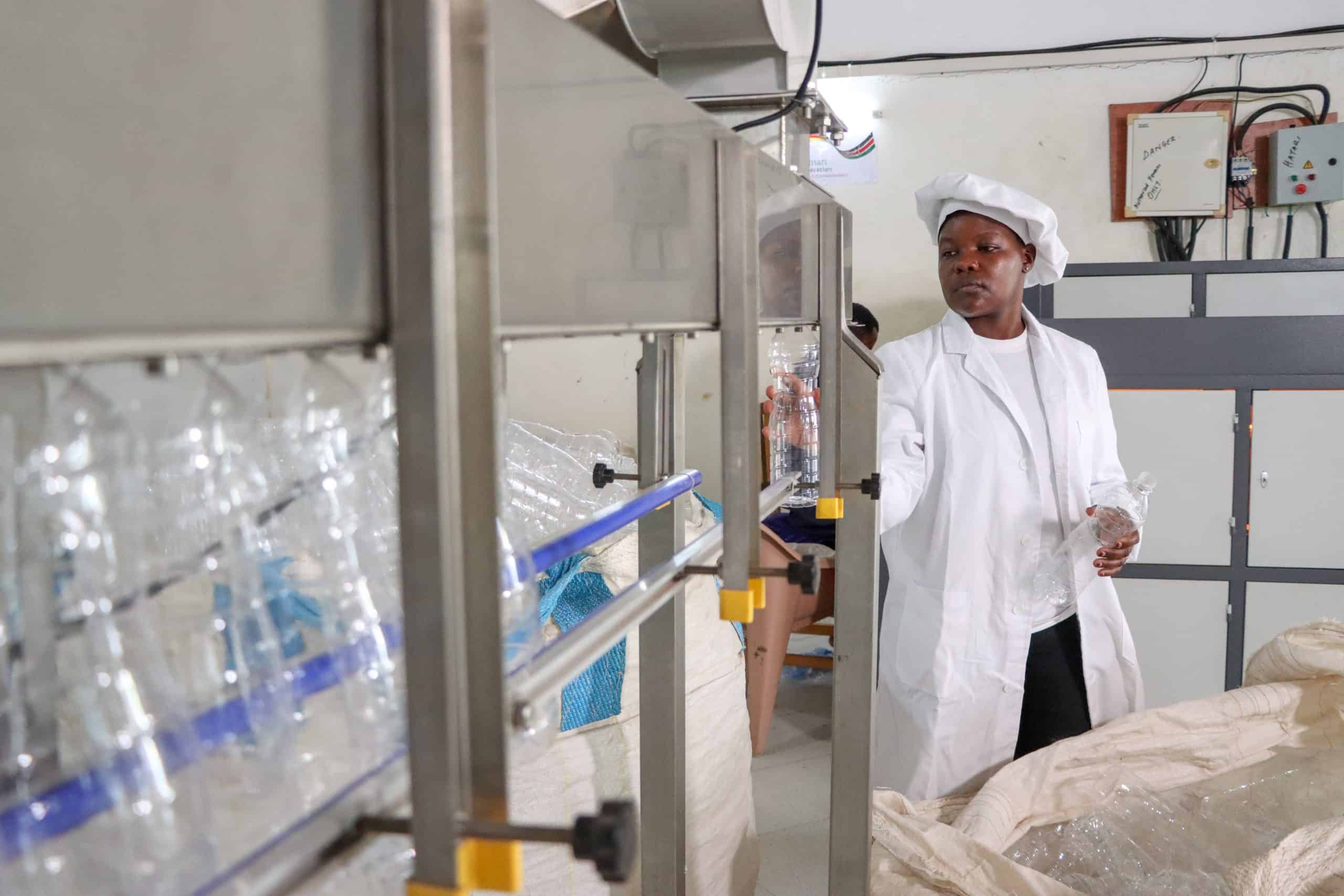At the height of COVID-19 in 2020, Isiah Mutua decided to drive from Nairobi to Kakuma to escape the government’s stringent lockdown measures. Unlike the densely populated capital, where restrictions were strictly enforced, Kakuma offered relative freedom. The rural town in northwestern Kenya, known for its arid landscape and one of the world’s largest refugee camps, became a quiet escape.
But the trip offered more than a break. Mutua, who had first visited Kakuma in 2018, saw an opening to pilot a clean energy project and launch a water business. That idea would grow into a multi-million Kenya shilling company.
“When I returned to Kakuma at the height of the pandemic, I noticed the company supplying bottled water during my first visit had left the market. [When I was here] in 2018, I consumed 3 to 4 liters of water daily. I saw an opportunity to start a water business,” he says.
In 2021, he began groundwork, conducted research, and secured licenses. By the end of the year, Lifta Kenya, his new company that specialized in the sourcing, processing and bottling of mineral water, was operational.
Kakuma is home to over 300,000 refugees from countries including South Sudan, Somalia, and the Democratic Republic of Congo, as well as the Turkana host community. With limited infrastructure, most people rely on seasonal rivers or deep wells that often produce saline water. Treatment is rare.
“Sometimes chlorinated water was being distributed, but it wasn’t adequately treated for safe drinking. We decided to install reverse osmosis equipment, which is expensive but ensures that our water meets safety standards. Every bottle we produce is safe and high-quality,” explains Mutua.
Lifta’s goal is to supply quality, affordable beverage products across northern Kenya. It plans to expand into carbonated drinks and more.
The company received grant support from the Kakuma Kalobeyei Challenge Fund (KKCF), which supports businesses serving refugee and host communities in the Kakuma Refugee Hosting Area. With that support, Lifta imported machinery for a water-filling line. Acquiring the equipment locally would have cost about Ksh 40 million (~USD$300,000), but KKCF helped them do it for less.

Lifta later secured another grant to purchase a 20-liter bottle-blowing machine. This helped reduce the cost of water from Ksh 50 to about Ksh 10 per liter, making clean water more accessible.
According to KKCF Program Manager Brian Meme, the five-year KKCF project was created to help the private sector provide essential services in Kakuma. “Many of the businesses operating in the area lacked technical capacity and financial support, and it was realized that if living the conditions for the host and refugee communities were to be improved, then a private sector kind of model was required to support the businesses that were already operating there, and scale them up to a level of self-sustainability,” says Brian.
Lifta currently employs 57 people, prioritizing women and youth. “We have hired many women, including refugees and host community members. Seven of the ten key distributors for our 20-litre bottles are women-owned shops. We also plan to install vending machines in these shops to support their businesses and improve their socio-economic status,” says Mutua.
At Kalobeyei Settlement, Kumala Muktar, who fled conflict in Somalia, is one of Lifta’s distributors. He arrived in Kenya in 2007 and was initially placed in Dadaab Refugee Camp before being moved to Kakuma.
“Getting clean and safe drinking water was not easy, but since Lifta began supplying bottled water, we rarely see outbreaks of waterborne diseases, unlike before,” says Muktar.
To address plastic waste, Lifta also purchased a recycling machine, funded by KKCF. For every bottle distributed, the company aims to collect and recycle two.
All Lifta employees undergo training on their rights and responsibilities, including the company’s zero-tolerance policy on gender-based violence.
KKCF also supported the installation of Lifta’s treatment and bottling plant and provided business development support, including training in management, recordkeeping, community engagement, and ESG compliance. “Five team members attended these sessions, enabling them to implement better systems and manage the business remotely while maintaining efficiency,” says Mutua.
Looking ahead, Lifta plans to expand production and community engagement.
“KKCF has already provided immense support, but additional assistance in scaling production and accessing new markets would help us achieve our vision,” says Mutua.
